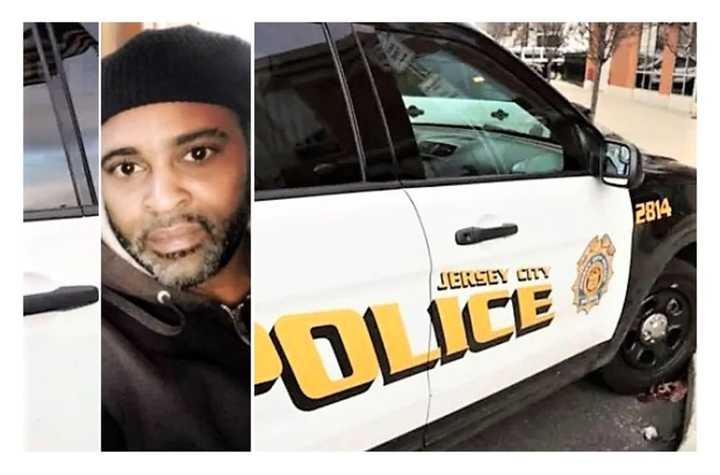An EMS unit was the first to respond to 2:15 p.m. call at the Randolph Avenue residence in the Bergen-Lafayette section of the city on Sunday, Aug. 27, according to a release issued late Monday by New Jersey Attorney General Matthew Platkin.
"Upon arrival, they requested the assistance of the Jersey City Police Department," the attorney general said.
Patrol officers arrived just before 2:30 p.m. and tried to communicate with Andrew Jerome Washington, 52, but he "refused to open his apartment door and remained inside," Platkin said.
"Officers attempted to establish a line of communication with Mr. Washington to no avail," the attorney general said. "[They] then requested the Jersey City Emergency Services Unit."
The specially trained ESU members arrived 20 or so minutes later, he said.
They tried to talk with Washington through the closed apartment door for more than a half hour before they forced it open shortly before 3:30 p.m., Platkin said.
"Mr. Washington immediately advanced toward the officers in the hallway/stairwell," the attorney general said.
ESU Officer Felix DeJesus fired a stun gun, Platkin said. Fellow ESU Officer Stephen Gigante then fired his service weapon, hitting Washington twice, he said.
"Law enforcement recovered a knife near Mr. Washington," Platkin added.
Paramedics treated Washington at the scene, then took him to Jersey City Medical Center, where he was pronounced dead at 4:47 p.m., the attorney general said.
A prayer vigil is scheduled for 6 p.m. Tuesday, Aug. 29, at the residence at 256 Randolph Avenue.
Family members said they'll raise prayers to "end excessive force and unjustified police violence."
"Drew" Washington -- who'd been shot by police in another incident 12 years ago -- was in a mental health crisis, they argued.
He wasn't violent, the family members said. He just had a "terrible illness" -- schizophrenia and bipolar disorder -- and had been talking loudly to himself and banging on the walls lately, they said.
They weren't expecting police to show up.
"A simple medical assistant[ce] call turned into a SWAT team killing," said Washington's aunt, Lisa Mendez. "He was in [his] own apartment causing no harm to no one. He just wouldn’t open the door.
"The Jersey City police forced entry and shot him like a criminal after we begged and advised everyone at the scene he had [a] mental disorder," she said.
A mental health professional couldn't have come to the scene because the apartment wasn't secure, Jersey City Mayor Steven Fulop and Public Safety Director James Shea said during a news conference on Monday.
Fulop and Shea said they both reviewed the police bodycam footage and agree that the shooting was justified because Washington charged at the officers with a large blade.
"While tragic, our police department acted appropriately," the mayor said.
"This was within the [New Jersey] attorney general's guidelines for use of force," Shea added. "It won't bring Mr. Washington back. We wish it had ended differently."
New Jersey law and his office's own guidelines require the state attorney general to investigate any and all deaths that occur “during an encounter with a law enforcement officer acting in the officer’s official capacity or while the decedent is in custody," no matter what the circumstances are.
The goal is to "promote the fair, impartial, and transparent investigation of fatal police encounters," Platkin has said.
Once the investigation by his Office of Public Integrity and Accountability (OPIA) is completed, the results will be presented to the grand jury “in a neutral, objective manner, and with appropriate transparency,” he said.
This will include all footage recorded by police body cameras and Tasers, which will first be shared with Washington's family before they're made public. There'll also be autopsy results, any other type of video that may have been recorded and interviews with the officers and civilian witnesses.
“An officer may use deadly force in New Jersey when the officer reasonably believes it is immediately necessary to protect the officer or another person from imminent danger of death or serious bodily harm,” Platkin said.
Fulop and Shea urged Platkin to release the footage as soon as possible.
"Mr. Washington is sick," Shea said. "He's not bad, he's not evil, he was sick."
However, the director said, it "didn't make him any less dangerous. We all wish it had ended differently. We wish there was better care for him."
Click here to follow Daily Voice Bergenfield and receive free news updates.
